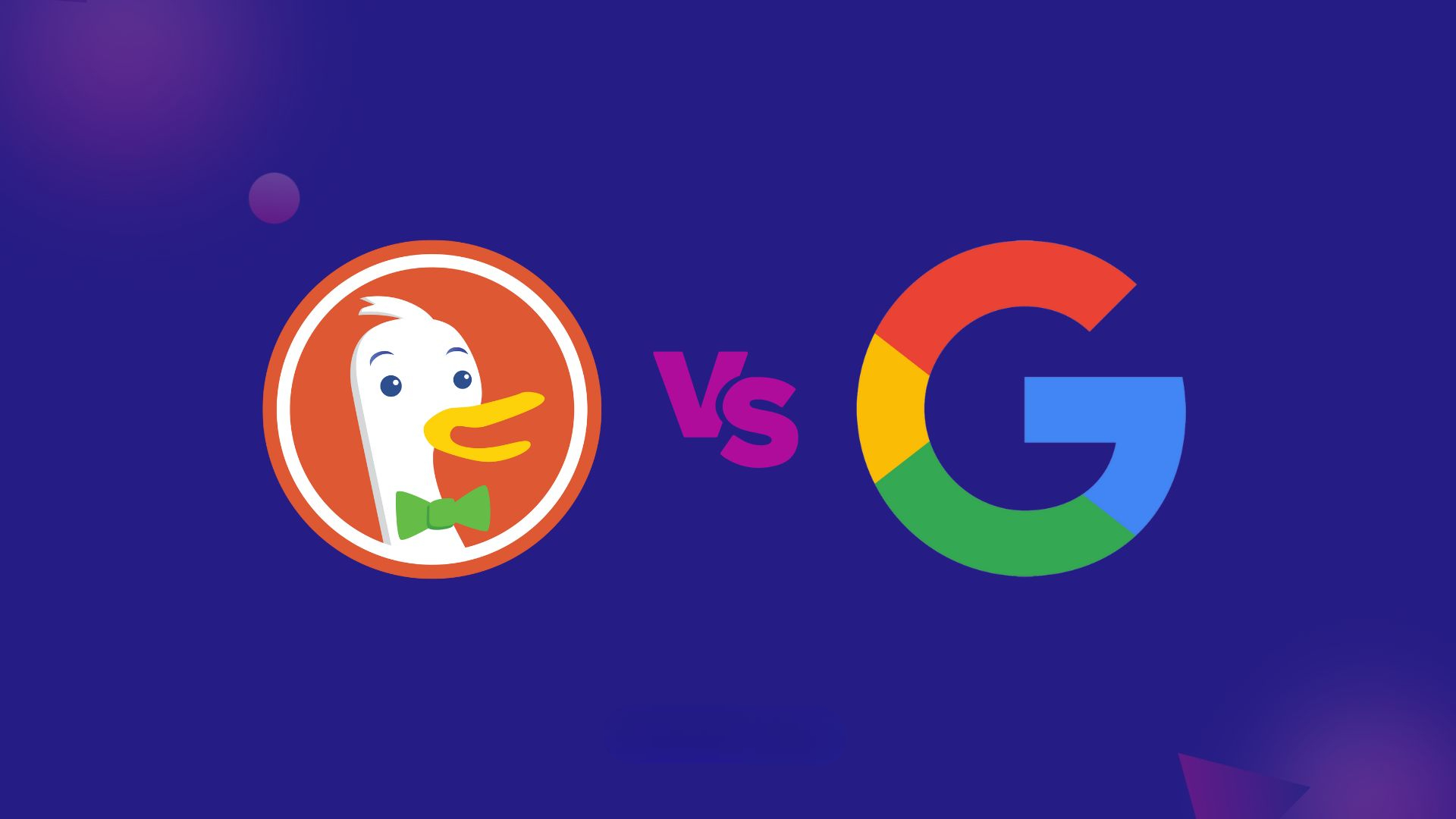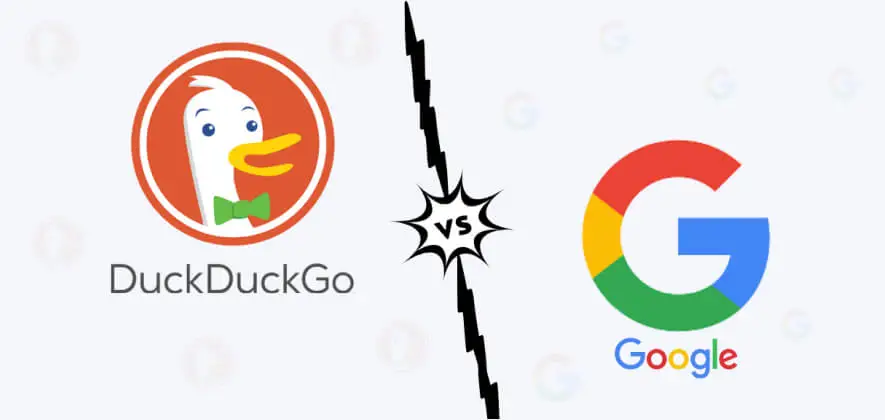
DuckDuckGo vs Google: Best Search Engine for Privacy and Speed
Google and DuckDuckGo are two popular search engines, each with its strengths and weaknesses. This comparison looks at their differences in privacy, search results, features, interface, and more to help you decide which search engine is best for you. Your choice of search engine can affect your web browsing experience. Google is the dominant player, providing fast results and a wide range of features. DuckDuckGo is growing in popularity because it prioritizes user privacy.
DuckDuckGo does not track your online activity, meaning your searches stay private. Google collects data to personalize results but this raises privacy concerns. So, your choice may depend on what matters more to you: speed and features, or privacy.
Understanding the differences between these search engines helps you decide which one suits you better. As you read on, consider your own needs when it comes to searching the internet.
One of the best ways to compare is to try them so do some sample searches on:
and
DuckDuckGo vs Google: A Head-to-Head Comparison

Privacy and Tracking
DuckDuckGo prioritizes user privacy, never tracking search history or personal data. Google, on the other hand, collects and uses vast amounts of user data for targeted advertising and personalized search results. If you value online privacy, DuckDuckGo is the clear winner.
Search Results
Google boasts a more comprehensive index and sophisticated algorithms, often delivering more relevant results for complex queries. DuckDuckGo sources its results from various partners like Bing and Yahoo, which might lead to slightly less relevant results for some searches. However, DuckDuckGo’s emphasis on privacy and unbiased results is appealing to many users.
Features
Both search engines offer a variety of features, including image and video search, news, maps, and more. Google’s vast ecosystem of products and services, such as Gmail, YouTube, and Google Maps, gives it an edge in terms of integrated features. However, DuckDuckGo offers unique features like “Bangs,” which allow you to search directly on other websites, and “Instant Answers,” which provide quick information without leaving the search page.
Interface and Design
DuckDuckGo features a clean, minimalist interface with a focus on simplicity and ease of use. Google’s interface is more cluttered, with a variety of options and features that can be overwhelming for some users. DuckDuckGo’s design is appealing to users who prefer a distraction-free search experience.
Comparison Table
| Feature | DuckDuckGo | |
|---|---|---|
| Privacy | Strong | Weak |
| Search Results | Good | Excellent |
| Features | Unique | Vast |
| Interface | Clean | Cluttered |
| Mobile App | Available | Available |
| Customization | Limited | Extensive |
Choosing between DuckDuckGo and Google ultimately depends on your priorities. If privacy is your top concern, DuckDuckGo is the better choice. However, if you prioritize comprehensive results and integrated features, Google might be a better fit. Consider your needs and preferences to decide which search engine best suits you.
Key Takeaways
- DuckDuckGo focuses on privacy by not tracking your searches.
- Google offers fast results and personalization but collects your data.
- Your choice depends on what you value more: features or privacy.
Comparing Search Engine Philosophies and Features
DuckDuckGo and Google differ in several areas, from their approach to privacy to their user interfaces. Each offers unique advantages and serves different user needs.
Privacy and User Data
DuckDuckGo prioritizes user privacy. They do not track or store user data. This means no personalized ads or search results based on past activity. They emphasize anonymous searching and block online trackers. DuckDuckGo has a strict privacy policy and offers a privacy-focused browser and mobile app.
Google, in contrast, collects user data to personalize search results and ads. They track search history, browsing data, and more. This allows Google to provide highly tailored experiences but at the cost of user privacy.
User Interface and Experience
DuckDuckGo features a clean, simple interface. It shows results without many distractions. Users appreciate the no-click Instant Answers, which provide quick information without extra steps. The homepage has a minimalist design that appeals to many.
Google’s interface is more complex. It includes various tools like Google Maps, Shopping, and News. Their design is clean but more packed with information. Google provides a seamless experience across platforms like Chrome, Android, and iOS.
Scope of Search Results and Utilities
DuckDuckGo uses a mix of its own web crawler, DuckDuckBot, and sources results from Bing, Yahoo, and other partners. They focus on quality over quantity, often highlighting trusted sources like Wikipedia. Their Instant Answers feature is a handy tool for quick info.
Google has the most comprehensive search index. Their advanced algorithms provide highly relevant and extensive results. Additional features like Google Maps, Shopping, and Knowledge Graphs enhance search capabilities. Google’s resources allow them to quickly index the vast internet.
Advertising and Monetization Strategies
DuckDuckGo uses non-tracking ads based on keywords. They do not profile users or personalize ads based on personal data. This aligns with their privacy-first philosophy. Revenue comes from these ads and affiliate partnerships with sites like eBay and Amazon.
Google’s primary revenue comes from personalized ads. They use detailed profiles built from search activity and browsing data. Advertisers target users based on specific criteria. Google partners with many third parties and tracks users across the internet.
Technical Infrastructure and Performance
DuckDuckGo runs on a mix of their tech and partners like Bing’s infrastructure. This limits their ability to innovate compared to Google. They prioritize improving privacy features and user experience.
Google has massive infrastructure capabilities. Their powerful servers and algorithms provide fast and accurate search results. Innovations like AI and machine learning enhance performance. Google’s extensive resources allow continual improvements and new features.
Extensibility and Ecosystem
DuckDuckGo offers browser extensions and a privacy-focused browser for mobile and desktop. They integrate well with browsers like Firefox, Safari, and Edge. Their ecosystem includes tools for privacy enthusiasts but lacks the breadth of Google’s offerings.
Google’s ecosystem is vast. It includes Chrome, Google Maps, Android, and numerous other products. Users benefit from integration across these services. Extensions for Chrome and mobile apps enhance functionality. Google’s ecosystem supports a wide range of internet services.



